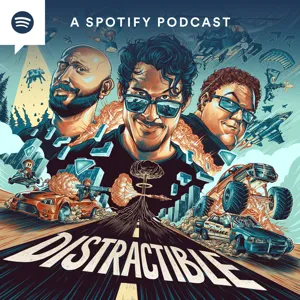Podcast Summary
Every decision involves moral considerations: Every decision we make, no matter how small, is an opportunity to exercise our moral judgment based on personal values and standards.
Every decision we make, no matter how small or large, is a moral decision. We are constantly making judgments about what the right thing to do is in a given situation based on our personal values and standards. Even seemingly simple decisions like whether to run a red light or choose between oatmeal and blueberry pancakes involve moral considerations. A moral code is simply a collection of behaviors based on these standards. So, the next time you find yourself facing a difficult moral dilemma, remember that every decision you make, no matter how insignificant it may seem, is an opportunity to exercise your moral judgment. And, as the podcast emphasized, these judgments are not just about following through with the right action, but also about the thought process behind making that decision.
Questioning Our Assumptions: It's essential to reevaluate our decision-making criteria as we gain more knowledge and experiences, as initial assumptions may not always be accurate or optimal.
The criteria we use to make decisions, even those we believe to be moral or healthy, can be flawed and in need of reevaluation as we gain more knowledge and experiences. For instance, a young person might believe blueberry pancakes are the healthier choice over oatmeal due to their belief that fruit is good for you. However, as they learn more about nutrition, they may realize their initial criteria was out of whack. Similarly, some decisions, like running a red light, have an immediate cost, while others, like consistently choosing the wrong breakfast option, may not show consequences until much later. It's crucial to question our assumptions, learn new information, and be open to adjusting our criteria as we grow and evolve.
Questioning our assumptions about eating animals: Consider personal criteria and accountability for actions, not all animal deaths are morally equivalent, and reflect on the implications of our choices.
It's essential to question our assumptions and critically examine the moral justifications we use for actions, even those deeply ingrained in our culture, such as consuming animal products for food. The speaker used the debate around the morality of eating animals as an example to illustrate how people often hold contradictory beliefs and prioritize convenience or pleasure over ethical considerations. He emphasized that there might not be a definitive answer to this question but encouraged listeners to reflect on their personal criteria and accountability for their actions. The speaker also highlighted that not all instances of killing animals are morally equivalent, and some, like self-defense or euthanasia, may be justified. Ultimately, the discussion invites us to consider the implications of our choices and the potential impact on the animals and ourselves.
Using personal pleasure or biological capability as the sole criteria for morals leads to problematic conclusions: Personal pleasure and biological capability alone do not provide a sound ethical basis for determining what is morally justifiable, as it could potentially condone unacceptable practices like cannibalism.
Using personal pleasure or biological capability as the sole criteria for determining what is morally justifiable can lead to problematic and ethically questionable conclusions. For instance, if we were to argue that eating meat is morally acceptable because it tastes good or because we are biologically capable of doing so, one could also argue that eating human beings is morally acceptable for the same reasons. However, most people would find this notion reprehensible. Therefore, a more nuanced argument is required. A more defensible position might be that the nutritional benefits of meat make its consumption morally justifiable. However, even this argument is not foolproof, as someone could argue that they have the same nutritional needs met by consuming human flesh. Ultimately, ethical considerations require more than just personal pleasure or biological capability.
Might makes right argument for meat consumption: The 'might makes right' principle, justifying meat consumption, can also justify cruelty towards humans and vulnerable groups, highlighting the need for compassionate and sustainable protein sources.
The argument for the moral justifiability of eating meat based on the idea of "might makes right" can be problematic. This principle, which suggests that what is right or wrong is determined by the stronger or more powerful entity, can justify not only the consumption of meat but also terrible actions towards other humans and vulnerable groups. This raises ethical concerns and underscores the importance of considering alternative, more compassionate and sustainable sources of protein, such as beans, nuts, eggs, whole grains, and synthesized protein. Ultimately, the conversation about the morality of eating meat requires a more nuanced and thoughtful approach, one that considers the welfare of animals, the impact on the environment, and the ethical implications for human beings.
Hierarchy of beings argument against consuming human meat: The belief that humans have a special status above other animals raises complex ethical questions about the morality of consuming human meat, but it's necessary to justify why this hierarchy ends with humans and not extend to other beings.
The argument for not consuming human meat based on the belief in a hierarchy of beings, with humans at the top, raises complex ethical questions. Those making this argument claim that humans have a special status above other animals and that killing or using other humans is wrong due to our shared team in the survival of the species. However, they face the challenge of justifying why this hierarchy ends where the human species begins and not extend to other beings. The onus is on them to explain why the hierarchy magically ends with humans and why it's morally forbidden to kill or use humans under any circumstances, despite the existence of circumstances where taking a human life might be morally acceptable, such as self-defense or saving a large number of lives. The argument also raises the question of whether humans are truly morally forbidden from using or killing other humans, regardless of the circumstances.
Discussing the morality of ending someone's life due to constant pain: The complexities of ethical dilemmas were explored, emphasizing the importance of considering multiple perspectives before making decisions based on our limited understanding of nature's intentions and the vast mysteries of the universe.
The question of whether it's morally justifiable to end someone's life due to their constant pain raises complex ethical questions. Some argue that humans have a superior position in nature, while others challenge this assumption and question our ability to truly understand nature's intentions. The discussion also touched upon the idea that nature may have ordered the world in ways that ensure the survival of the earth, rather than prioritizing human comfort. Ultimately, it's unclear if humans can make definitive value judgments about their place in the universe, given the vast mysteries of nature and the limitations of our knowledge. The conversation highlights the complexity of ethical dilemmas and the importance of considering multiple perspectives before making decisions.
The morality of eating meat and consuming plants: The morality of our actions towards food is complex, involving various beliefs and assumptions, and questioning the value of different forms of life.
Our moral criteria are not always based on clear-cut reasoning, but rather on various beliefs and assumptions. In this discussion, the debate centered around the morality of eating meat, with some arguing that nature allows it and others believing that humans have the ability to make moral choices. The argument for eating meat also extended to questioning the morality of consuming plants. Ultimately, the conversation highlighted the complexity of moral reasoning and the potential for faulty criteria, as well as the challenge of determining the value of different forms of life. The discussion also underscored the importance of considering the implications of our actions and the potential consequences for all sentient beings. Despite the complexity of the issue, it serves as a reminder to critically examine our moral beliefs and consider the potential impact of our actions on others.
The ethical standards of the past differ from those of the present: It's crucial to consider the ethical implications of our actions and strive to align them with the values of our current society, recognizing that ethical standards evolve over time and ongoing reflection and dialogue are necessary.
The ethical standards of the past are not always in line with those of the present. In the hypothetical scenario discussed, individuals who engaged in morally reprehensible actions would not be held accountable if future generations came to view those actions as wrong. This is similar to how people from the 1700s who owned slaves are now viewed. The criteria we use to judge actions change over time. However, the question of whether there is a right or wrong answer to moral dilemmas is complex and debatable. Some may argue that God gave humans dominion over animals, while others may believe that actions have moral consequences regardless of the time period. Ultimately, it's essential to consider the ethical implications of our actions and strive to align them with the values of our current society. The discussion also highlighted the importance of ongoing ethical reflection and dialogue. The speaker expressed a wish that the conversation could continue, acknowledging the complexity of the issue and the need for further exploration.




